
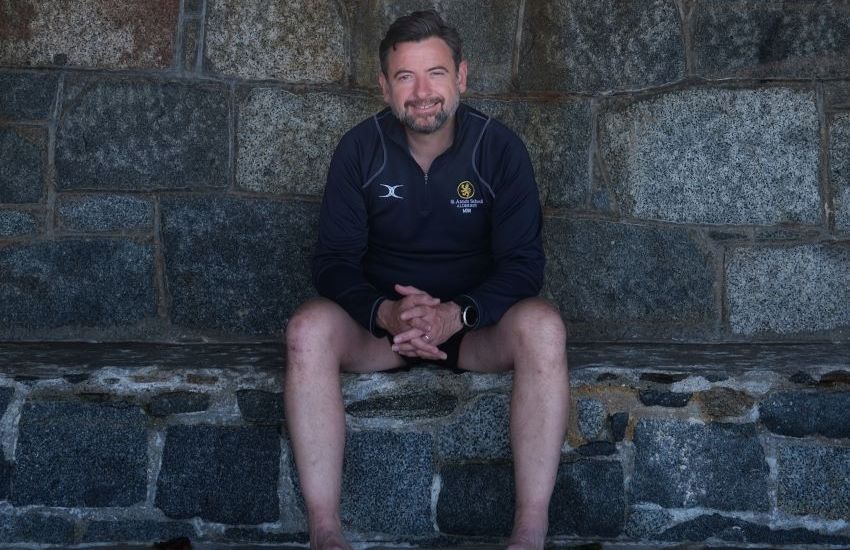

Martin Winward left St Anne’s School in Alderney at the end of May after six-and-a-half years as Head Teacher.
Like all leaders, Martin has endured times of challenge and unpopularity, especially in his early days, but almost everyone connected with the school agrees that it is in an infinitely stronger place now than when he arrived.
In the latest edition of CONNECT - Express' sister publication - Martin spoke to Editor Matt Fallaize about his time at St Anne’s, theology, alarm clocks at 4.45am, family life and much else. Express reproduces that feature interview here.
Credit for pictures of Martin Winward: Paul Chambers.
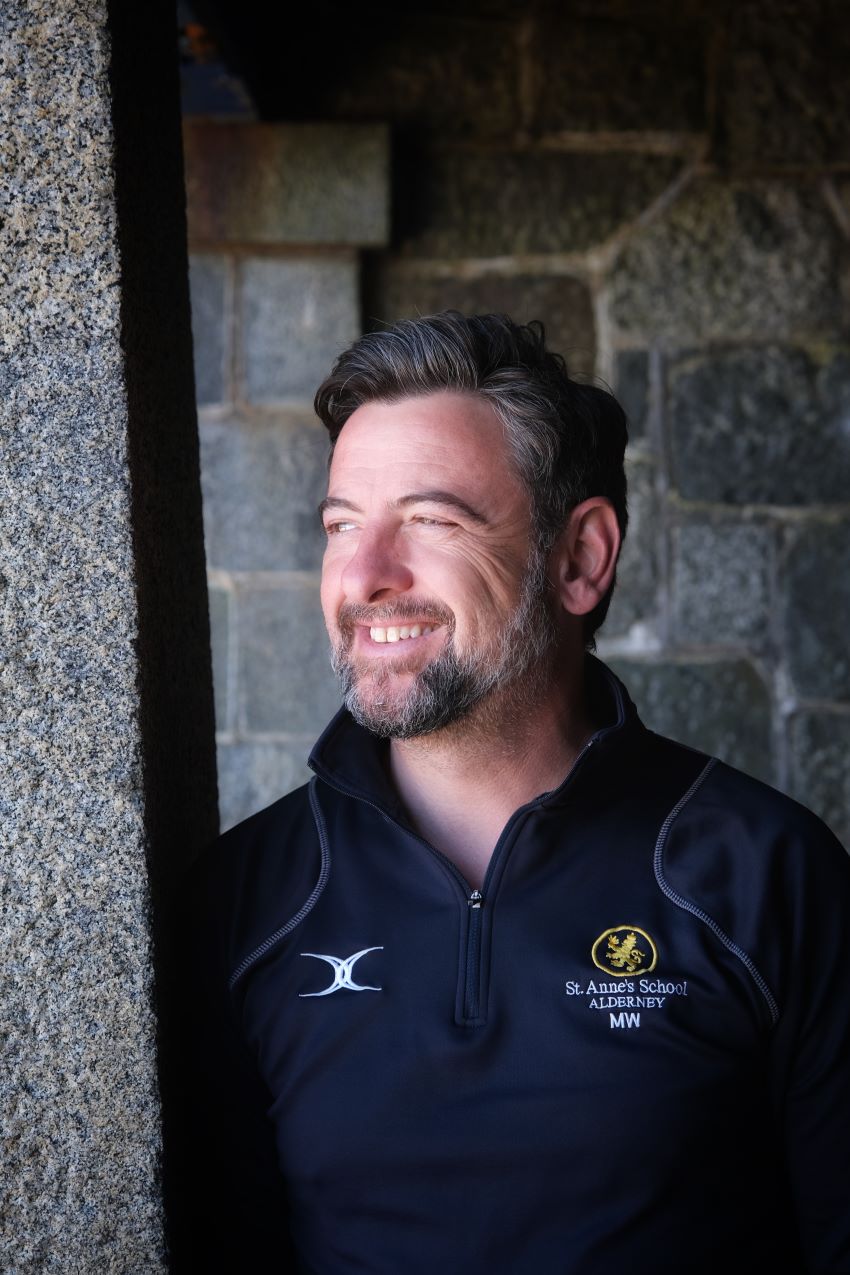
Pictured: Martin spoke to CONNECT in the last week of his six-and-a-half year tenure as Head Teacher of St Anne's School in Alderney.
Martin pulls no punches about the plight of St Anne’s School when he arrived in Alderney to lead it just before Christmas in 2015.
“St Anne’s had come to a place where many staff who had worked there for many years had accepted that they were one step away from Guernsey geographically and also with their hearts and minds and unfortunately they had really lost their way,” said Martin.
“Accountability is very important to me and to the way I like to lead. At St Anne’s at that time, I sensed that any accountability for performance and structure had gone by the wayside. It had fallen into being a school which was led by consensus rather than directional leadership, which is what it needed.
“I was clear with the school about my thoughts. I think most staff did welcome the thought of change. But we all know that change can be desired but then challenging when you start to implement it. Not only for the school community but for the wider community as well. Often it is only over time that people reflect and see change as necessary and positive. Those early days can be very challenging and some of them were.”
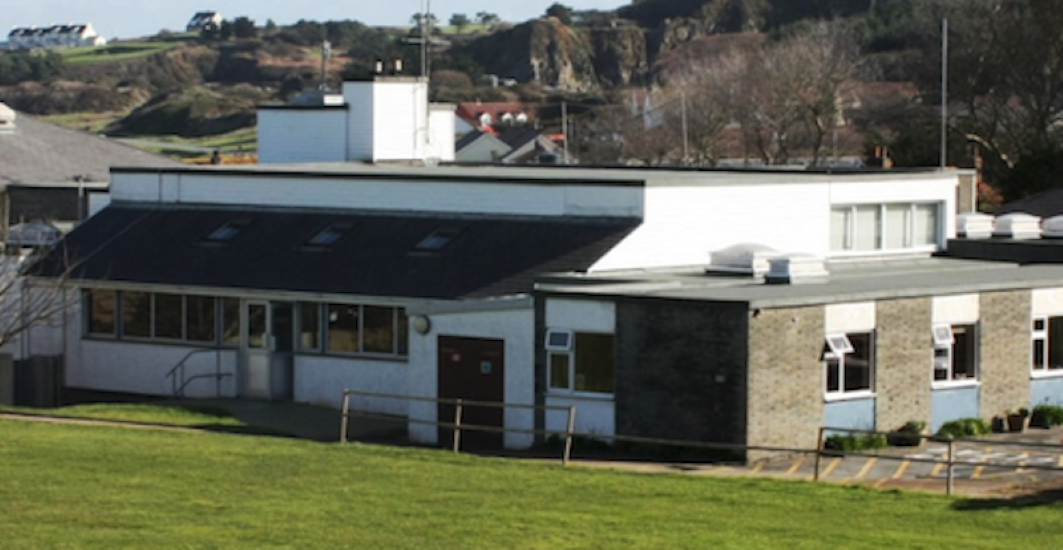
Pictured: When Martin arrived at St Anne's School, he identified the need for widespread structural and cultural reform.
The leadership of change often emerges from a crisis. Sceptics of change can sometimes resist it by claiming the crisis is manufactured or exaggerated, but at St Anne’s, by the summer of 2016, the sceptics had run out of road.
“The turning point was when [GCSE] results came out in August 2016,” said Martin. “We got 25% of grades at A* to C including English and Maths. We were on track for those young people to get 64% of grades at A* to C. On course for 64% and they got 25%. I recall vividly that those young people had been let down by the whole school community over their five years of secondary school. I can still see in those children’s eyes how they had been let down.
“By calling it out publicly [in a broadcast interview], the then Acting Deputy Head, Wendy Wilson, and I were really clear that the school was operating in a mediocre fashion. We said that too many staff were complacent and that there was going to have to be rigorous change. It was at that point, in August 2016, that things changed.”
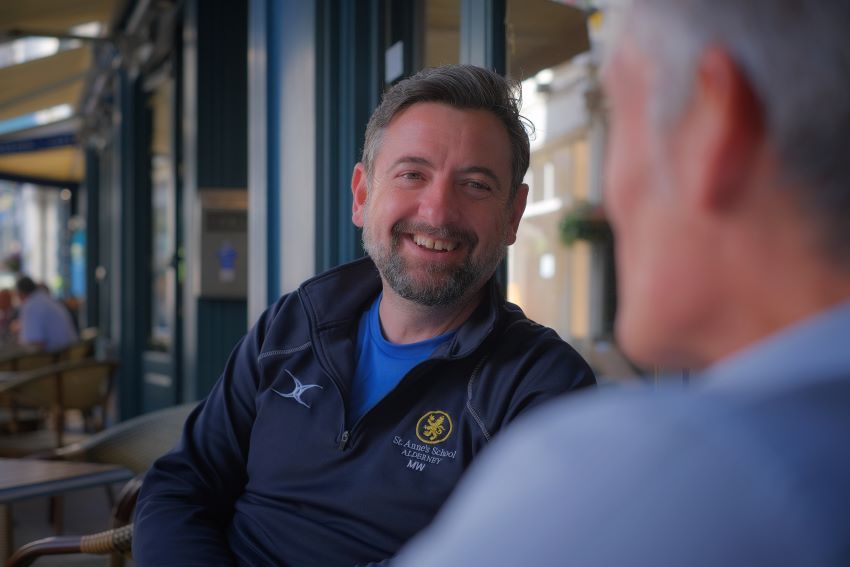
Pictured: Martin said that St Anne's could not have achieved improvement in recent years without the support of colleagues in education in Guernsey.
Over the past five years, results have certainly improved with the exception of one year with a quite different cohort of students. The GCSE benchmark has averaged close to 60% and last year nearly reached 80%. On almost all other quantitative and qualitative measures, St Anne’s is doing much better. It’s impossible to overstate Martin’s role in that. He is hopeful the changes will endure.
“What I hope most is that mediocrity is no longer accepted by the school community and indeed the whole community. I hope they continue to challenge respectfully both the States of Alderney and the States of Guernsey to ensure the school never again gets into the position of failing children by their results and their experiences and generally not being fit for purpose. My hope is that it remains consistently good or better.”
Martin speaks highly of the standard of teachers he is leaving behind. “Over the past nearly seven years, we’ve spent time to get recruitment right and get the right people in the right positions.” He said that many colleagues had bought property in Alderney and put down roots as residents.
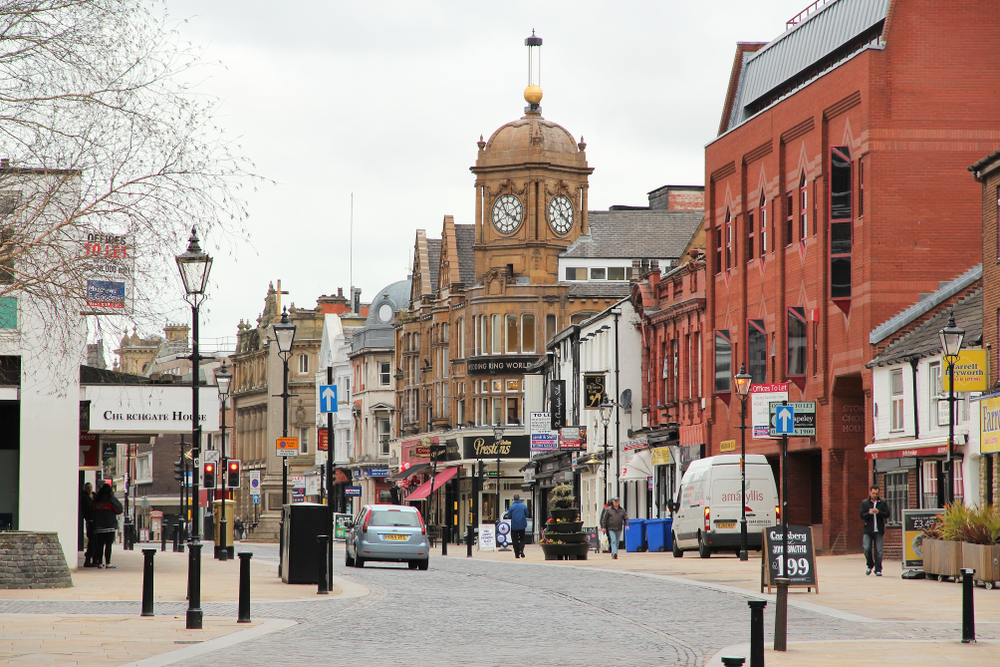
Pictured: Martin was born in Bolton in the north-west of England.
Martin’s own roots can be traced to Bolton in Greater Manchester, where he was born and lived until he was 18. His decades away, including periods a very long way away, have not entirely removed his Lancastrian accent.
After school, he went into industry. “My career took me into textiles and manufacturing. I worked in it until my first degree, which was at the age of 27 – in biblical and theological studies with Greek.
“My thoughts about teaching came later. My path at that point was very much around ordination and going to work in the church. I did six years of study and in my seventh year, which would have been my probation year, I decided that actually teaching was going to be my route.
“I had been fortunate enough in my mid-20s to take a couple of years out from the business I had created. I did two years’ voluntary work for a homeless charity working particularly with 18- to 25-year-olds with a view to moving them from sentences to a halfway house. In doing so, they had to undergo training and education around life skills and had various other opportunities, one of which was personal education, and that’s what first drew me into thinking about teaching, possibly through the route of the church.
“I did my PGCE [postgraduate certificate in education] in Bath and then my first school was in Chippenham in Wiltshire – an 11 to 18 school. Theology was my degree and religious education was my substantive subject in teaching.”
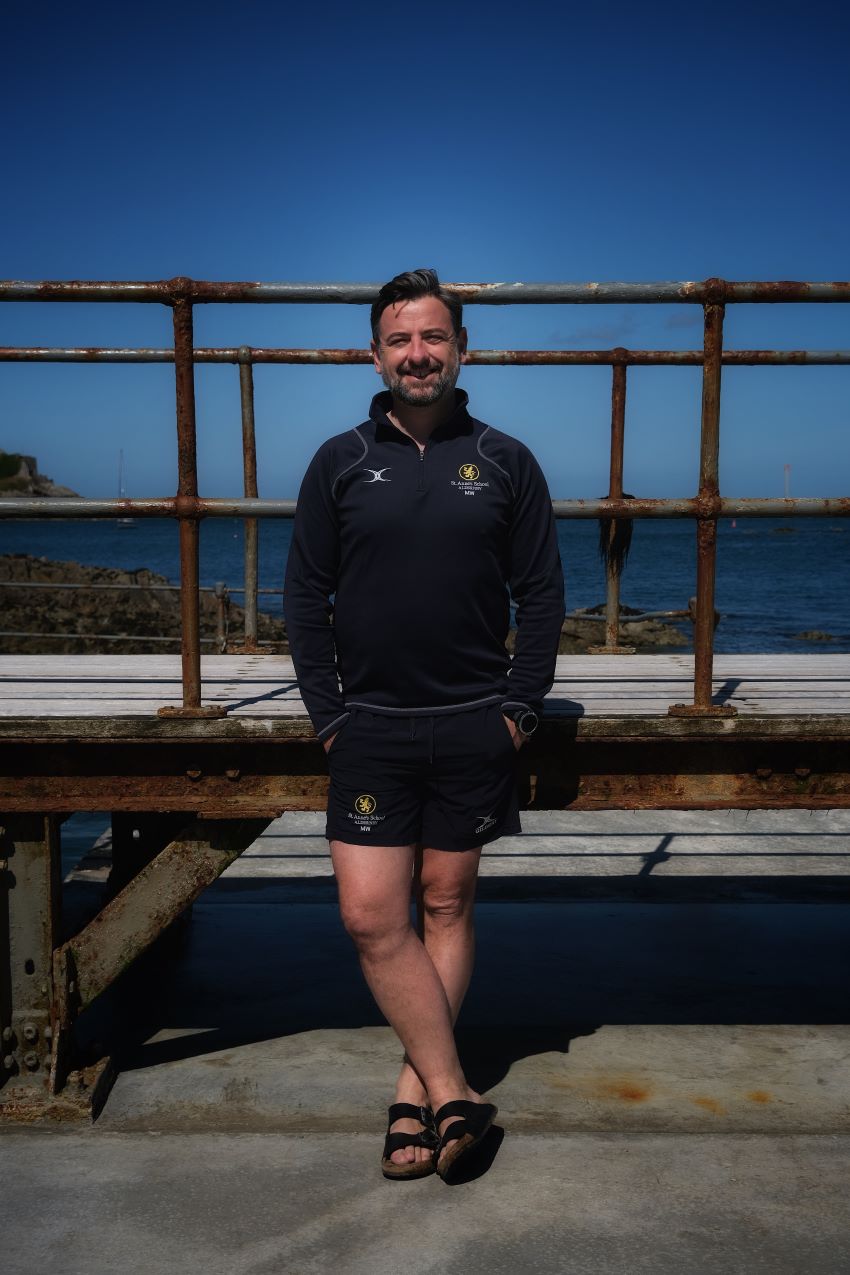
Pictured: Martin started his professional life in industry, but has now been in teaching and school leadership for nearly 25 years.
After 14 years in Wiltshire, Martin was looking for a school headship, and that ambition combined with personal reasons to lead him 8000 miles from home – to the Falkland Islands.
“So, I think the move to the Falklands was just meant to be. There were many things which connected at that point. We had a couple of friends who had gone out there to live. My father-in-law was in the 1982 conflict. He was part of 2 Para – [which fought iconic land battles such as Goose Green and won the Victoria Cross] – and so there were strong ties there with my wife’s family. And I was looking for a headship and there was an attractive offer there.”
After three years in the South Atlantic, Martin wanted to be closer to the UK again and of course by this time had an unusual speciality of leading a very small school in a very small island, at least in population terms. It is no surprise that the vacancy at St Anne’s caught his eye.
“When I showed an interest in the post in Alderney, I spoke to Nick Hynes [now the States’ Director of Education], and he obviously saw some parallels between the Falkland Islands and the Channel Islands. Not least, Nick understood the job that had to be done in Alderney, and I think he recognised that some of the skills I had used in the Falklands might be of use in Alderney.”
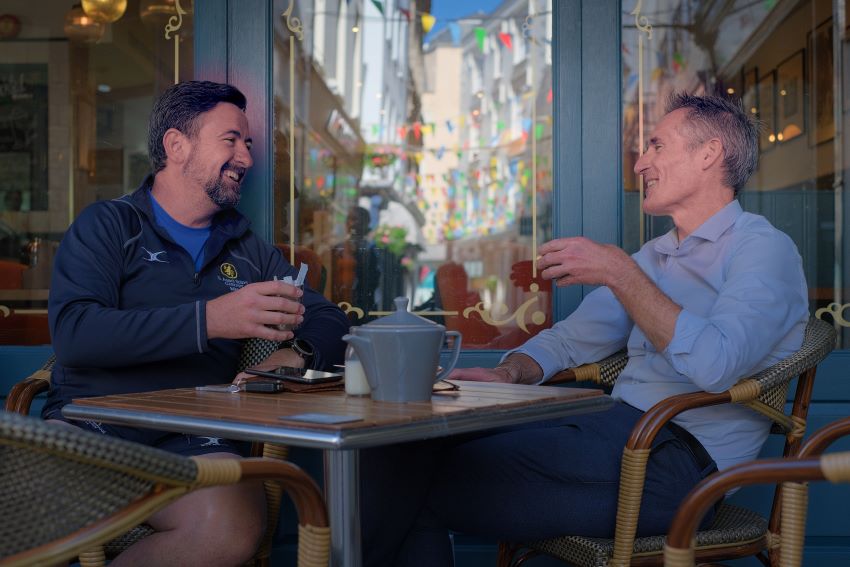
Pictured: Martin has worked closely with Nick Hynes, who is now Director of Education.
Martin’s family had moved with him to the Falklands and initially followed him to Alderney but after 18 months there they returned to live in England. For the past five years, Martin has worked in Alderney away from his family – wife Natalie and children Eva, 17, Vienne, 15, and Ted, 14. His next job – head teacher at a specialist school – will require no such distance. “I’m heading to Shropshire. I’ll be reconnecting with my family in our family home in a small market town in South Shropshire. I’m very much looking forward to working close to my family again.”
Martin is typically deliberate, economical and thoughtful with his words. But he becomes especially pensive and reflective when we talk about the challenges of working in a demanding leadership role away from his young family. Naturally, it has played on his mind a lot over the past five years, and it has clearly been a hard toll to bear.
“When you’re in that position, perhaps you don’t see it quite so starkly, but of course it’s tough. You have one or two things to do. First, you focus on the job. And then you have to find other outlets. For me, it’s been important to find my love of the outdoors again. I swim. I cycle. I run. I walk. I socialise with friends. In particular, friends we connected with when we first arrived in the island. I have been careful about what to get involved in outside of the school. When you work in a senior and public position in Alderney, you very much live and breathe the job 24/7 and that can sometimes be a challenge.”
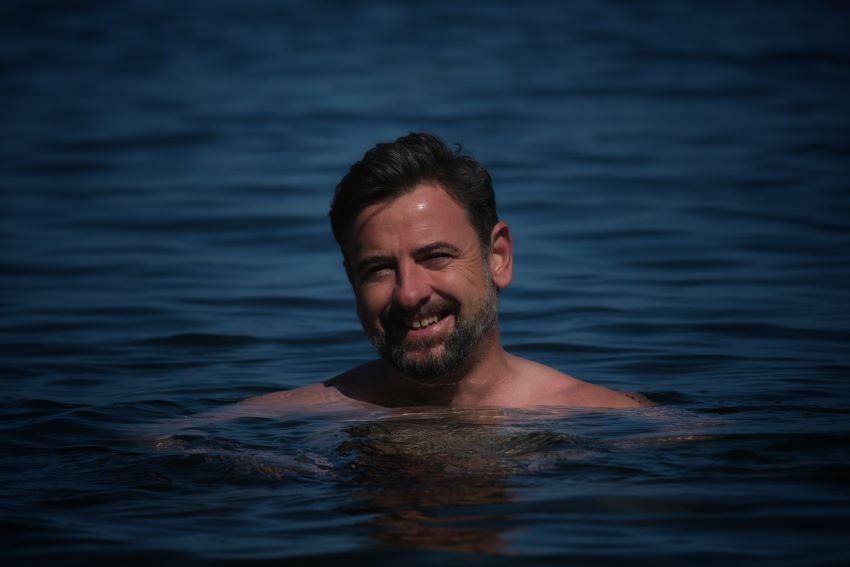
Pictured: During his time in Alderney, Martin has become a near-daily swimmer.
Martin’s typical weekday in Alderney started at 04:45. “I’m quite formulaic in my routine. I read for half an hour. That tends to be something related to my job. I then decide whether I’m going to run, swim or cycle. Usually, it starts with swimming. I get into work around 07:00. Usually, we have a leadership team meeting at 07:45. At 08:15, as a team, we go out and meet and greet families at the gates, whether infants, juniors or secondary. At 08:25, the school day begins. For the leadership team, the school day finishes around 17:00 or 17:30, maybe 18:00.”
I ask Martin about the change or achievement at St Anne’s of which he is most proud. He doesn’t hesitate before saying “the curriculum – the development of the curriculum”. He thinks so much else flows from this. “You’ve got to have a curriculum which is meeting the needs of young people in the sense that it’s purposeful, considered, stretching and challenging. Our school motto is ‘inspired to learn – supported to succeed’ and that has to mean something. We were first to wholly embrace the English Baccalaureate [a rigorous measure of standards] using AQA as a credible qualification. I think that’s testament to the curriculum being at the heart of what we do.”
Martin has tried hard to minimise the risks to education in Alderney of isolation. “In terms of curriculum development, we have tried to get ourselves on par with Guernsey secondary schools. The word parity is important to me. Championing and making the most of our links with Guernsey have always been very important to me. And we have developed links with other organisations in Guernsey like the Youth Commission and Sports Commission.” Martin saw being closely linked to the centre of education in Guernsey as a way of maintaining aspiration in education in Alderney, which he said “was a challenge and is a challenge”. “It would be right to acknowledge the support I’ve had from my peers in Guernsey – the primary and secondary heads and [the Education Office]. Whilst feeling responsibility to be a driving force in Alderney, that has been possible only because of the support of people in Guernsey.” He reserves particular thanks for Nick Hynes.

Pictured: St Anne's School expanded during Martin's headship, opening a pre-school to become the first all-through States' school in the Bailiwick.
Under Martin’s leadership, St Anne’s has truly become an all-age school. “I think we are still the only education establishment within the States that has a connected pre-school. We’re very proud of that. We recognised that there was a need for an offer to Alderney families with younger children which had a link to the school and had a seamless transition from the age of three. It was the States’ 15 hours a week scheme which was the basis for us being able to do this for our families. It’s been hugely successfully.”
Martin’s single greatest regret at St Anne’s was not making more progress on opportunities for post-16 students with special educational needs. “I think that with the review of the Education Law and with the SEND review that we’ve had in recent times, there needs to be an acknowledgement that those young people could and should be at St Anne’s School, perhaps to 19, and that we should actively work with the community – particularly the Chamber of Commerce – to see independent but supported living for those young people. That is close to my heart.”
Another potential development which, if it comes to fruition, Martin would have played a key role in starting – through his partnership with the Guernsey Sports Commission and Alderney Sports Foundation – is the construction of new indoor and outdoor sports facilities at St Anne’s, the like of which Alderney has never seen.
Pictured: In April, Express reported on plans for significant improvements in sports facilities in Alderney put together by the Alderney Sports Foundation and the Guernsey Sports Commission with the support of St Anne's School.
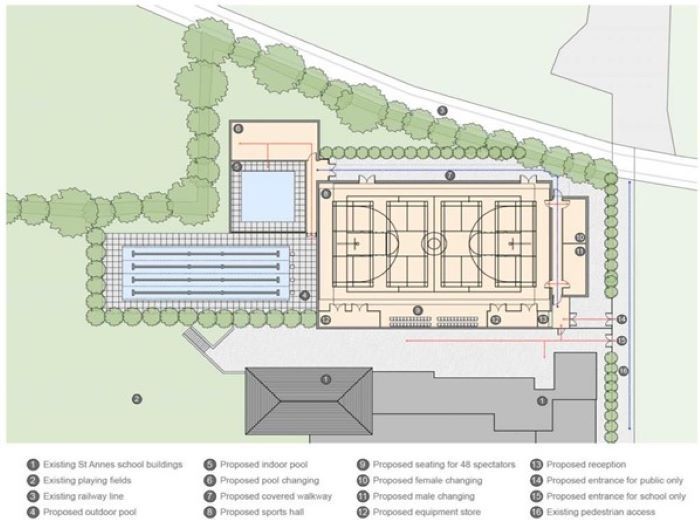
Pictured: The ambitious plans include two swimming pools and a sports hall and would provide facilities far superior to anything currently available to schoolchildren and the wider community in Alderney.
Martin will doubtless watch developments in Alderney closely. Nobody can invest as much of themselves in any organisation or place as Martin has in St Anne’s without coming to care deeply about its people and its future. He and his family also have friendships in the island which they want to retain.
Professionally, Martin is looking forward to his next challenge. “The school I’ll be leading is an all-through school with children aged four to 18. It’s part of the independent sector and part of a large academy chain. It offers specialist provision. We can take up to 60 young people. I seem to find these roles, which take me into a new layer of challenge.”
The school community at St Anne’s is certainly thankful that Martin took up and surmounted the not inconsiderable challenge of turning the tide of education in Alderney.
June/July edition of CONNECT Guernsey
Comments
Comments on this story express the views of the commentator only, not Bailiwick Publishing. We are unable to guarantee the accuracy of any of those comments.